brand
Agbaje: Using Fairs to Redefine Retail Banking
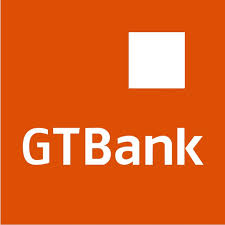
Segun Agbaje, the managing director/CEO of Guaranty Trust Bank (GTBank), is not a popular man. To many, he is aloof, too strait-laced, not your typical run-of-the-mill Nigerian. As one of Nigeria’s foremost bankers, he has a reputation for running a tight and efficient ship, is unflinching in his pursuit and recovery of loans from the country’s systemically chronic debtors who have a sense of entitlement believing that they can borrow depositors’ funds without paying back, and does not give a hoot about those critical of his take-no-prisoners approach to banking.
In the media space, he does not seek publicity, he lets his work speak for itself, could not care less if his story or photograph makes the front page of the newspapers, limits his bank’s advertising spend to what he believes is necessary to market and promote GTBank to a wider audience, and through NdaniTV and Ndani Blog understands the power of the social media in reaching out to youths that make a larger percentage of Nigeria’s and regional demographic where the bank operates.
To me, Agbaje is the ideal banker. He is not my friend and we only interact sparingly and strictly professionally as the need arises. Yet, I cannot help but wish that we had more bankers like him in this country. If we did, fewer Nigerian lenders would have to make provisions for unpardonable impairment charges on bad loans given to delinquent debtors, fewer banks would engage in reckless insider lending that threaten their capital adequacy and liquidity ratios, more banks would recognise that they have a fiduciary responsibility to manage their customers’ deposits with care, and more banks would know how to sweat their assets in the most cost-efficient manner to make the most attractive returns to their shareholders.
In all the key parameters used in defining the size of banks, GTBank, among the five Tier 1 banks in the country, is not by any stretch of imagination the biggest. In terms of total assets, loans and advances, customer deposits, number of branches, and presence on the African continent and beyond, FirstBank, Zenith Bank and United Bank for Africa (UBA) stand head and shoulders above GTBank. By Nigerian standards, the “big three” could be called banking behemoths and are very difficult to supplant. Still, GTBank, with its cost optimisation strategy, asset quality and stability ratios, among others, has over time proved to be the most profitable bank in the country. Its stock has remained the bellwether in the banking segment of the Nigerian bourse for years, signposting the confidence institutional and individual investors have in the bank.
But this article is not about GTBank’s financial performance. Its annual and quarterly reports, including those of its peers, are public documents that can be readily accessed for in-depth comparative assessment. What I have found more interesting about the bank is its focus on corporate social responsibility (CSR) and interventions in key economic sectors targeted at strengthening small businesses through not-for-profit fairs and capacity building initiatives. For two years in a row, GTBank has solely funded and hosted its Food and Drink Fair and Fashion Weekends, making them social and tourist events that feature prominently on Nigeria’s social calendar. That is not to say that the bank has not focused on other areas of CSR. Its 2016 annual report showed that GTBank spent about 58 per cent of the N449.62 million of its CSR funds on education alone while community development accounted for another 30.8 per cent.
But it is GTBank’s focus on food, drink and fashion that have been the most impactful publicly, bringing together scores of promising, talented and recognised local and international chefs and food vendors, drinks makers and merchants, fashion houses, milliners, fashion accessory designers and leather goods makers in a dizzying, well-put together and well-thought out extravaganza that leaves the public yearning for more. Both events, which are open to the public, have been attended by several thousands of people, including children, for two years running that have left attendees breathless and wondering how the bank manages to package the two fairs in areas where it has no competencies.
The trick, says Agbaje, whom I had to hound to open up on the success behind both fairs, is getting and attracting the best participants and controlling costs by getting the bank to work directly with the contractors who have to build the stalls, decorate the venue, create play areas and cooking classes exclusively for children, and provide the music, etc., during both fairs; no middlemen or consultants are used by the bank. For him, the fairs present an opportunity for GTBank to deepen its footprint in the retail banking space and increase its SME lending from 2 per cent of the bank’s loan book to 10 per cent over the next five years.
With time, he would also rather extend more loans to small and medium-sized businesses that are more impactful on the economy and achieve a loan recovery rate of 70-80 per cent, than pursue Nigeria’s so-called “big men” with woeful credit track records. Although he was demur about what it costs his bank to host both events, he was emphatic that making money at this juncture is not the overdriving objective, at least not in the short-term, but recognises the long-term benefits not just for GTBank but other Nigerian lenders.
Beyond this objective and given the magnitude of both fairs and their potential to grow into annual events that could attract millions from across the global, Agbaje’s vision is not one to be trifled with. Already, the GTBank Food and Drink Fair and the GTBank Fashion Weekend create thousands of direct and indirect jobs and referrals for hundreds of young Nigerians who have to build the stalls, decorate the venue, and provide the music, entertainment, security and other support services to make them a resounding success. And they have the potential to create even more.
Aside the suppliers, vendors and designers that make brisk business and achieve record sales during the fairs, the Master Classes included in both events are helping to build capacity and drive innovation in the creative industry that has proved to be a major magnate for Nigerian and African youths. By bringing them under one roof, GTBank has also provided a platform for shared services and given them the exposure that help these small businesses to grow and create more employment opportunities.
Without doubt, both fairs are worthy initiatives. But they could be better. In the last two years, GTBank has handled both fairs singlehandedly without support from other institutions and/or the Lagos State government, a direct beneficiary of the events and their spin-offs. In 2016, the food and drink fair alone attracted 25,000 people; this year, it attracted 75,000 people. I do not have the numbers for the bank’s fashion weekends, but I can imagine that the number of visitors will not be far off from those who attended the food and drink fairs.
Given the swelling numbers, both fairs have already started to cause traffic gridlocks on the days they are held. They are also attracting touts and hoodlums who mill around the roads leading to the venue and try to pounce on unsuspecting visitors as they alight from their cars or walk to the venue. On a positive note, big and boutique hotels, restaurants and food caterers on the Lagos Island experience an upsurge in occupancy rates and patronage by participants and the international media who have flown in to take part or cover the events. All these translate to more tourist dollars, taxes and revenue generation for the federal and Lagos State governments.
The import of this should not be lost on the federal and Lagos State governments.
They have to do more than just show a passing interest in what GTBank has started. Given the potential for both fairs to become global destinations for tourists and visitors on the African continent, Lagos State in particular needs to improve on its infrastructure in and around the venue where both fairs are held. It must improve on traffic management and security to ensure that visitors can move about with ease and feel secure. According to Agbaje, in terms of support, the state government has not yet stepped up to the plate, nor has his bank sought for any. But he does acknowledge that with time, GTBank will have to reach out to Lagos State because of the interest both fairs are generating in terms of attendance and participation.
Right now, Agbaje appears to be satisfied with what his bank has accomplished in terms of bringing both fairs to the public’s consciousness. But do the federal and state governments understand the roles that they have to play in institutionalising them and ensuring that they outlast his stewardship in GTBank? Cities like Rio de Janeiro, London, Paris, New York and Melbourne that host major sporting, fashion, carnivals, music and film festivals every year, attracting thousands of visitors do not owe their success just to corporate sponsors but to the municipalities, state and federal governments that understand their roles and lend the required support to the private sector. As such, Lagos State needs to buy into the GTBank fairs as a public-private partnership that can and should work
brand
Fidelity Bank appoints Onwughalu as Chairman following completion of Chike-Obi’s tenure
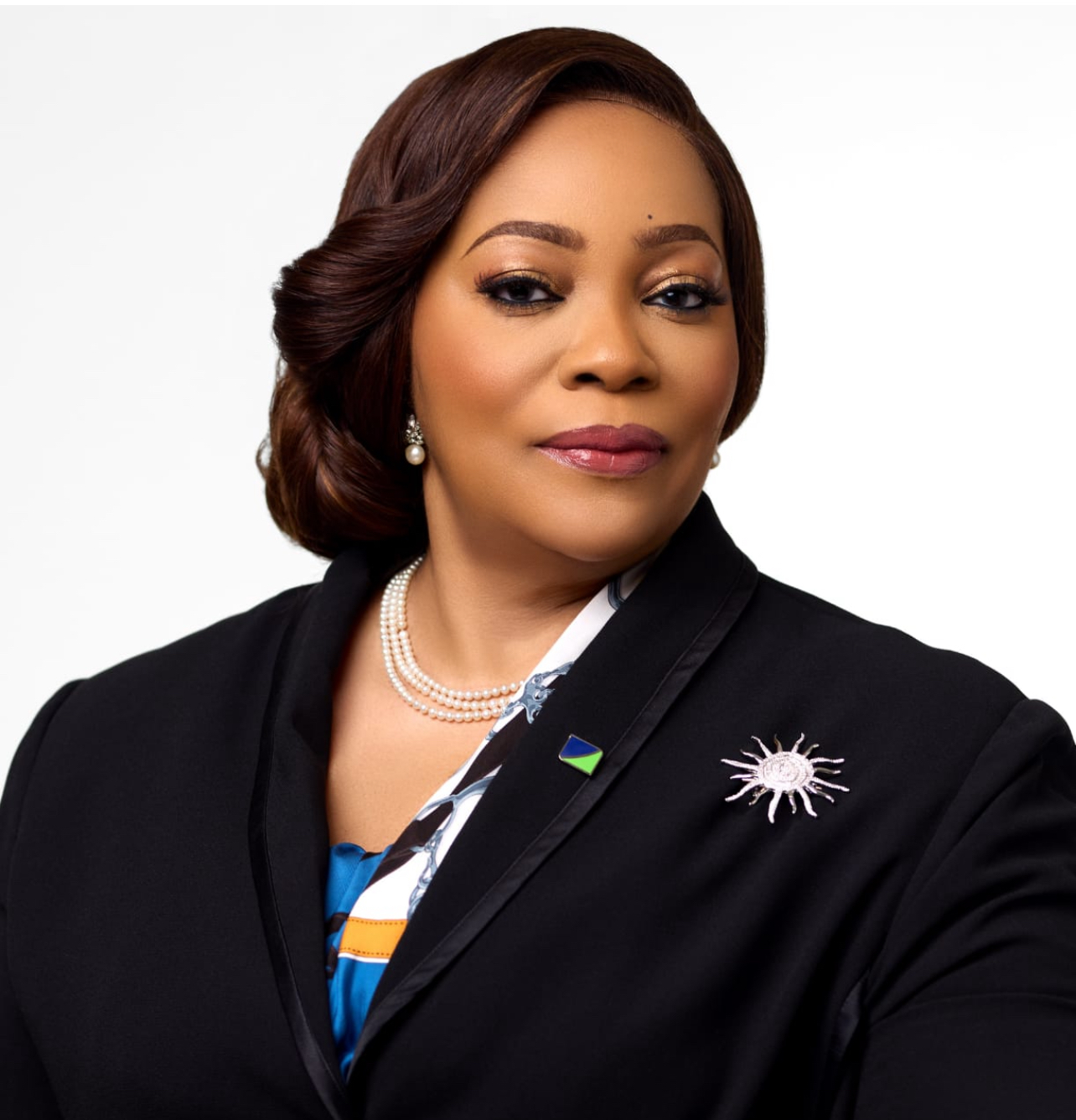
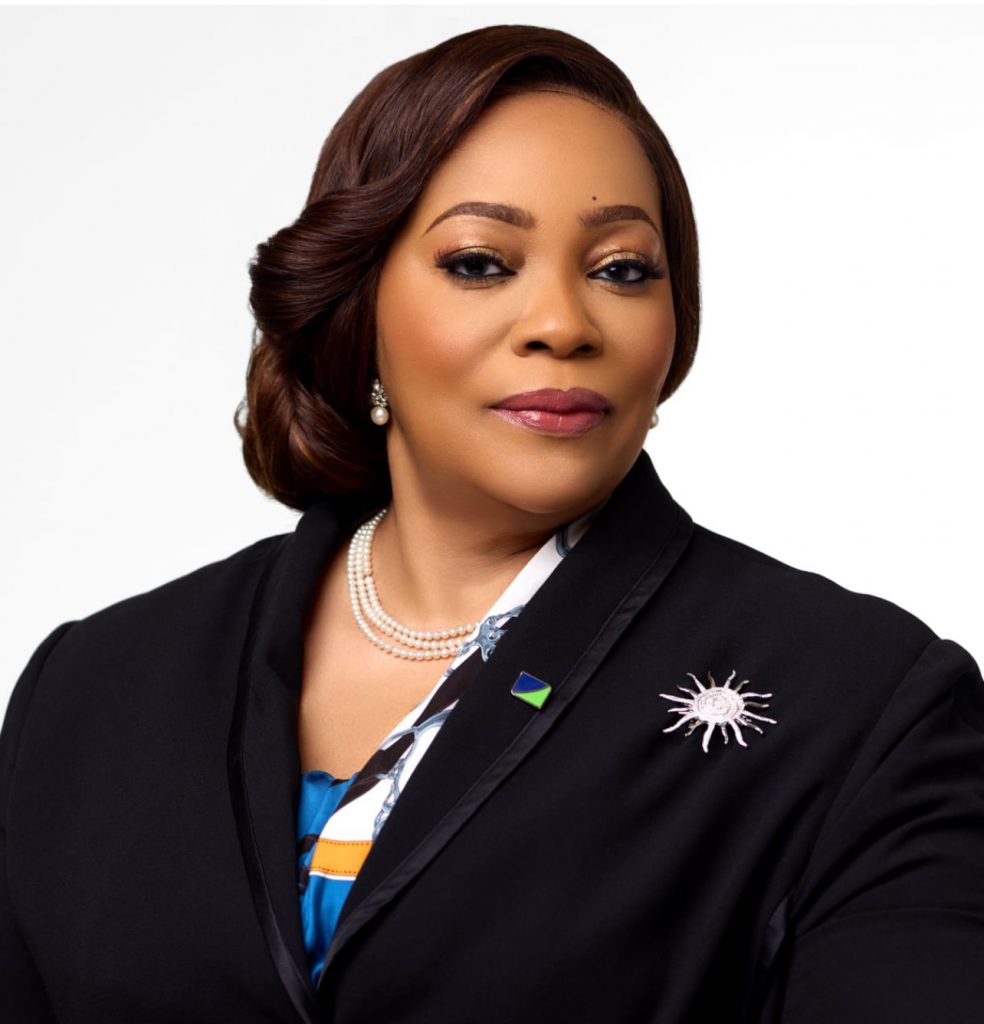 Tier one lender, Fidelity Bank Plc, has announced the completion of the tenure of Mr. Mustafa Chike-Obi as Chairman of its Board of Directors effective December 31, 2025, and the appointment of Mrs. Amaka Onwughalu as the new Chairman of the Board, effective January 1, 2026.
Tier one lender, Fidelity Bank Plc, has announced the completion of the tenure of Mr. Mustafa Chike-Obi as Chairman of its Board of Directors effective December 31, 2025, and the appointment of Mrs. Amaka Onwughalu as the new Chairman of the Board, effective January 1, 2026.
The board transitions are in alignment with the Bank’s policy and have been communicated to the Central Bank of Nigeria, the Nigerian Exchange Group, and other stakeholders.
Under Mr. Chike-Obi’s leadership, Fidelity Bank repaid its Eurobond, completed the first tranche of its public offer and rights issue that were oversubscribed by 237 percent and 137.73 percent respectively, expanded internationally to the United Kingdom, and received improved ratings from various agencies amongst a long list of achievements. His tenure also saw the Bank strengthen its capital position, record steady growth in customer deposits and total assets, deepen its digital banking capabilities, and enhance its corporate and investment banking proposition. The bank equally made notable progress in governance, risk management, and operational efficiency, all of which contributed to strengthened market confidence and the Bank’s sustained upward performance trajectory.
Reflecting on his tenure, Mr. Mustafa Chike-Obi said, “It has been a privilege to serve as Chairman of Fidelity Bank. The dedication of our Board, management, and staff has enabled us to reach significant milestones. I am confident that the Bank will continue to thrive and deliver value to all stakeholders.”
Mrs. Amaka Onwughalu’s appointment marks a new chapter for Fidelity Bank. She joined the Board in December 2020 and has chaired key committees. With over 30 years of banking experience, including executive roles at Mainstreet Bank Limited and Skye Bank Plc. She holds degrees in Economics, Corporate Governance, and Business Administration, and has attended executive programmes at global institutions. Mrs. Onwughalu is a Fellow of several professional bodies and has received awards for accountability and financial management
“I am honoured to lead the Board of Fidelity Bank at this exciting time. Our recent achievements have set a strong foundation for continued growth. I look forward to working with my colleagues to drive our strategy and deliver sustainable value,” commented Mrs. Onwughalu.
Ranked among the best banks in Nigeria, Fidelity Bank Plc is a full-fledged Commercial Deposit Money Bank serving over 9.1 million customers through digital banking channels, its 255 business offices in Nigeria and United Kingdom subsidiary, FidBank UK Limited.
The Bank is a recipient of multiple local and international Awards, including the 2024 Excellence in Digital Transformation & MSME Banking Award by BusinessDay Banks and Financial Institutions (BAFI) Awards; the 2024 Most Innovative Mobile Banking Application award for its Fidelity Mobile App by Global Business Outlook, and the 2024 Most Innovative Investment Banking Service Provider award by Global Brands Magazine. Additionally, the Bank was recognized as the Best Bank for SMEs in Nigeria by the Euromoney Awards for Excellence and as the Export Financing Bank of the Year by the BusinessDay Banks and Financial Institutions (BAFI) Awards.
brand
UBA Group Dominates 2025, Banker Awards, Emerges Africa’s Bank of the Year, For Third Time in Five Years
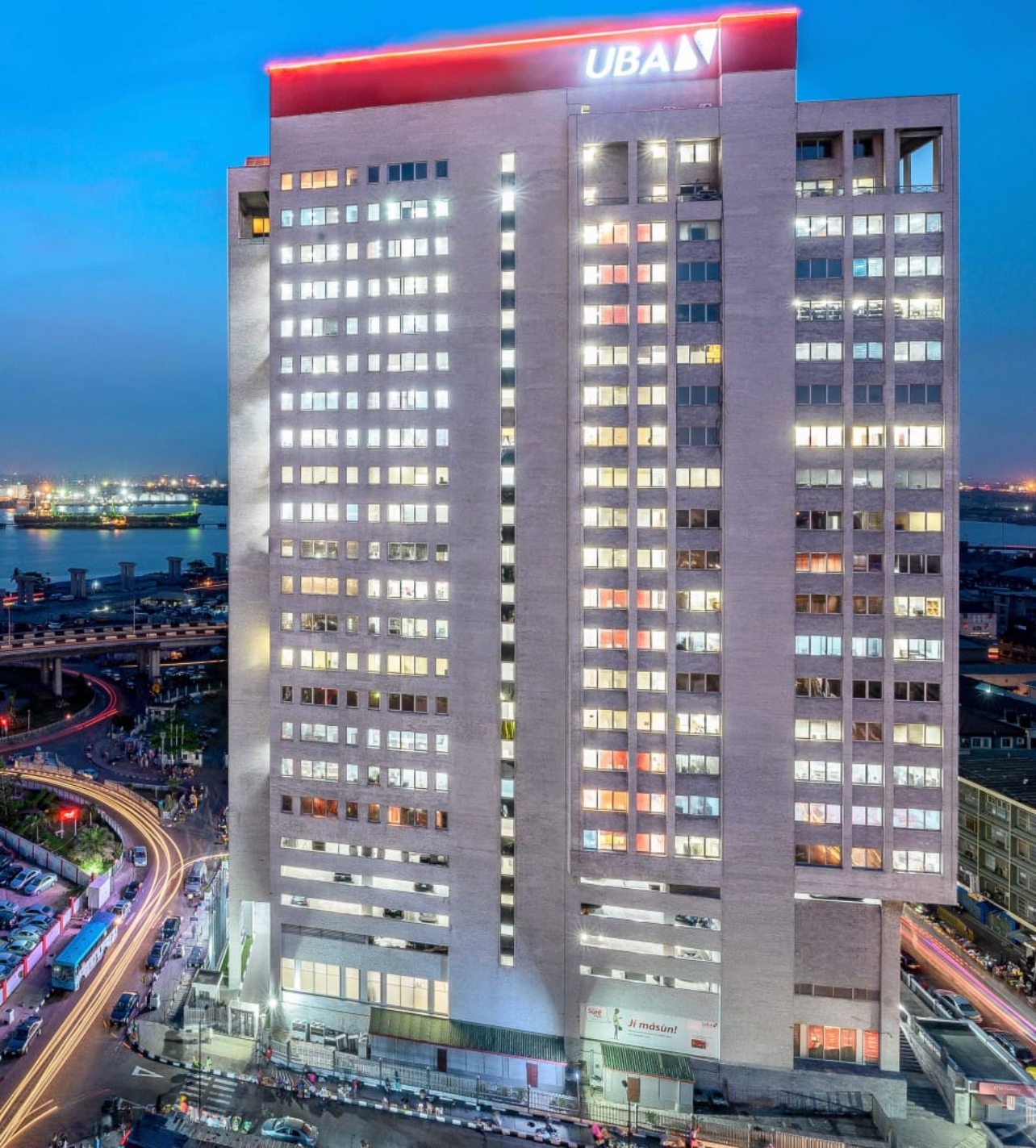
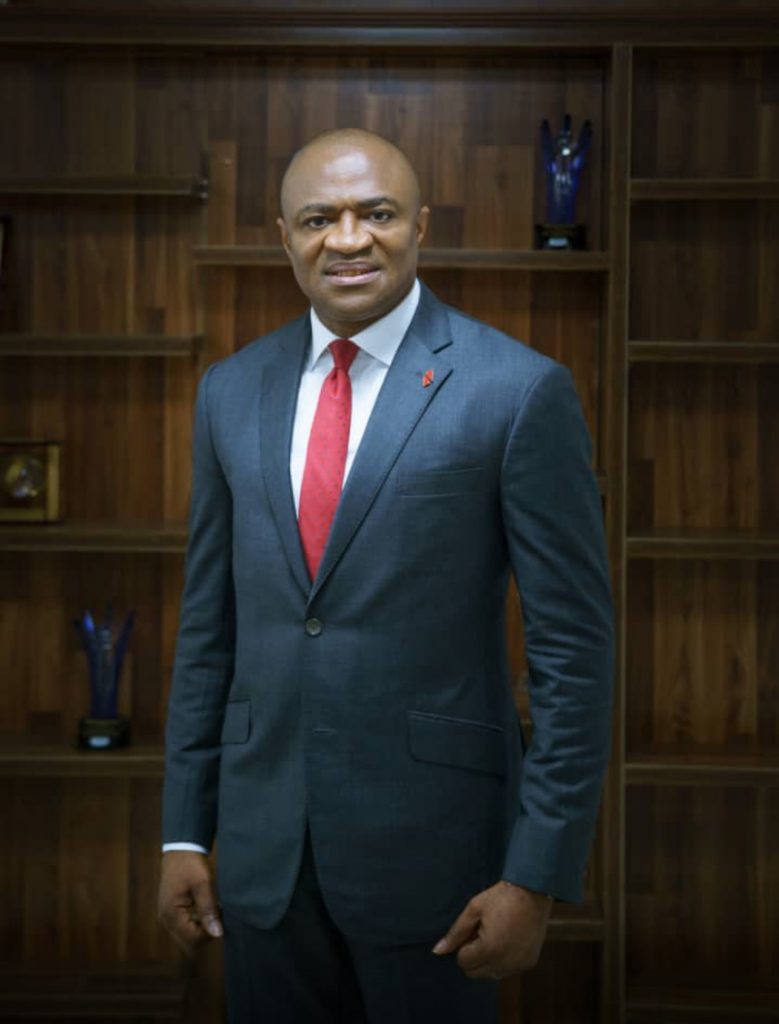
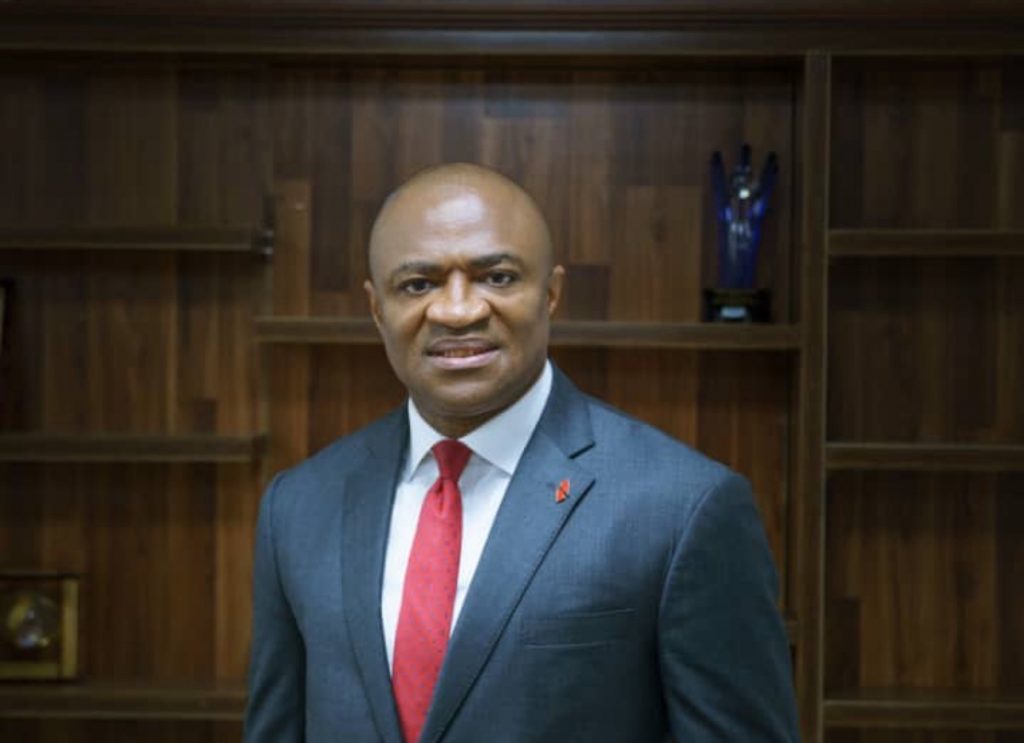 ….Wins Best Bank in Nine out of 20 African Subsidiaries
….Wins Best Bank in Nine out of 20 African Subsidiaries
Africa’s Global Bank, United Bank for Africa (UBA) Plc, has once again, reaffirmed its leadership as one of the continent’s most innovative and resilient financial institutions, as the bank has, for the third time in five years, been named the African Bank of the year 2025 by the Banker.com.
UBA also won the Best Bank of the Year awards in nine of its 20 African subsidiaries, bringing its total awards this year to ten as UBA Benin, UBA Chad, UBA Republic of Congo (Congo-Brazzaville), UBA Liberia, UBA Mali, UBA Mozambique, UBA Senegal, UBA Sierra Leone, and UBA Zambia, all came out tops as the best banks in their respective countries, underscoring the bank’s strength across West, Central and Southern Africa and highlighting the depth of its Pan-African franchise.
The Banker.com, a leading global finance news publication published by the Financial Times of London, organises the annual Bank of the Year Awards, and this year’s edition was held at a grand ceremony at the Peninsula, London, on Wednesday.
The Chief Executive Officer, UBA UK, Deji Adeyelure, received the awards on behalf of the bank, representing the Group Managing Director/CEO, Oliver Alawuba, and was accompanied by the bank’s Head Business Development, Mark Ifashe, and Head, Financial Institutions, Shilpam Jha.
The Banker’s awards are widely regarded as the most respected and rigorous in the global banking industry, celebrating institutions that demonstrate outstanding performance, innovation and strategic execution.
In its remarks on UBA’s winnings, the banker.com said, “For the third time in five years, UBA Group has won the coveted Bank of the Year award for Africa. UBA Group time after time punches above its weight against its larger African rivals. The bank this year also takes home nine separate country awards (one more than it gained for its last continental win in 2024), equivalent to around a quarter of the awards for the continent, and more than any of its continent-wide rivals.”
Continuing, it said, “Perhaps even more impressive is the fact that the awards were won across a broad geographic spread, going to lenders based in the Economic Community of West African States (Benin, Liberia, Senegal, Sierra Leone, and former member Mali), the Central African Economic and Monetary Community (Chad, Republic of Congo) and the Southern African Development Community (Mozambique, Zambia). Its award wins were particularly notable in the highly competitive categories for Benin and Mozambique.”
The Banker also highlighted UBA’s strong financial performance and commitment to future growth. In 2024, the Group recorded a 46.8 per cent increase in assets and a 6.1 per cent rise in pre-tax profits in local currency terms, while continuing to invest significantly in talent and technology. West Africa remains UBA’s heartland, with operating revenue and profit increasing by 87 per cent and 89 per cent respectively in H1 2025.
The bank’s digital and innovation leadership was equally recognised. During the year under review, and launched its Advance Top-Up buy-now-pay-later feature on the *919# USSD platform, expanding financial access for customers, while the bank’s chatbot Leo continued its strong growth trajectory, with transaction volumes rising by 29 per cent year-on-year in H1 2025. Notably, in August, Leo became the first African banking chatbot to enable cross-border payments via the Pan-African Payment and Settlement System (PAPSS).
UBA’s Group Managing Director/Chief Executive Officer, Oliver Alawuba, while reacting to the achievement, said the recognition affirms the bank’s long-term strategy and customer-first philosophy.
“This honour reflects the strength of our Pan-African network, the trust of our customers, and the dedication of our people. Winning Africa’s Bank of the Year for the third time in five years is not by chance; it is a testament to disciplined execution, innovation, and a deep understanding of the markets we serve,” Alawuba said.
“Our nine country awards across diverse regions of Africa show that UBA is not just growing, but growing with impact. We remain committed to driving financial inclusion, supporting economic development, and deploying technology that makes banking simpler, faster, and more accessible to Africans everywhere,” he added.
United Bank for Africa is one of the largest employers in the financial sector on the African continent, with 25,000 employees group-wide and serving over 45 million customers globally. Operating in twenty African countries, the United Kingdom, the United States of America, France and the United Arab Emirates, UBA provides retail, commercial and institutional banking services, leading financial inclusion and implementing cutting-edge technology.
brand
ZENITH BANK TECH FAIR 5.0 SPOTLIGHTS INNOVATION, AWARDS ₦140 MILLION CASH PRIZE TO HACKATHON WINNERS
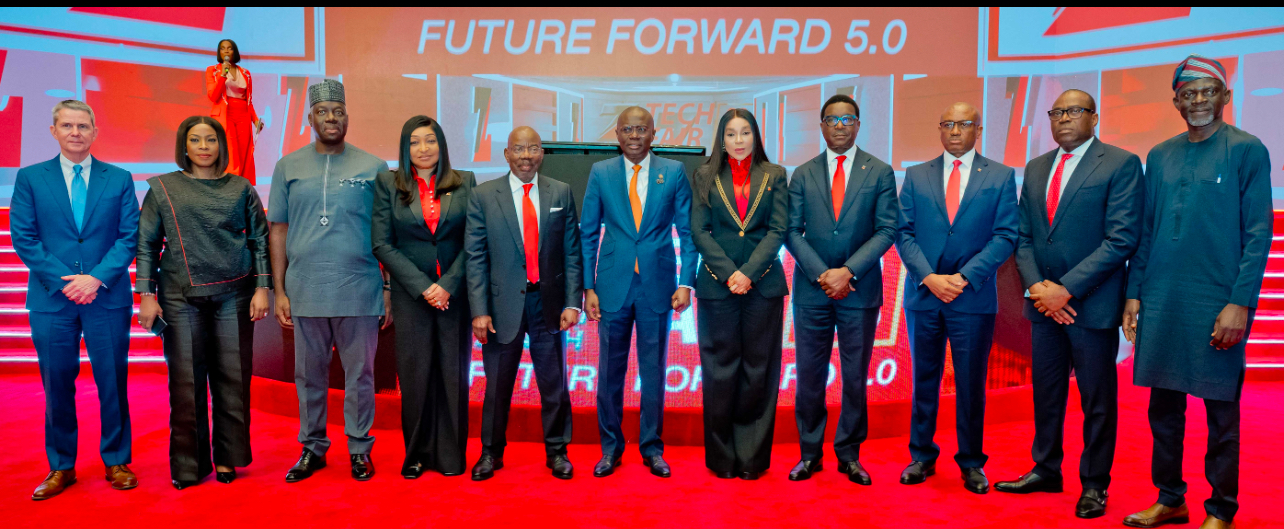
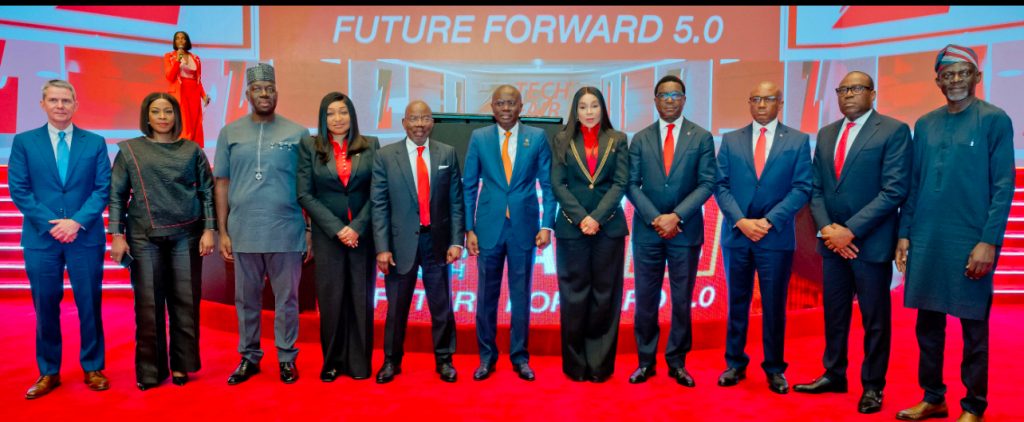
L-R: Executive Vice President, CNN International Commercial, Phil Nelson; Founder & CEO, Beyond Limits Africa and Non-Executive Director, Zenith Bank, Dr. Juliet Ehimuan; Managing Director/CEO, NIBSS, Premier Oiwoh; Executive Director, Zenith Bank, Mrs. Adobi Nwapa; Founder & Chairman, Zenith Bank, Jim Ovia, CFR; Governor of Lagos State, Mr. Babajide Sanwo-Olu; Group Managing Director/CEO, Zenith Bank, Dame Dr. Adaora Umeoji, OON; Executive Director, Zenith Bank, Mr. Akin Ogunranti; Executive Director, Zenith Bank, Mr. Louis Odom; Executive Director, Zenith Bank, Mr. Adamu Lawani; and Director, Information Technology Infrastructure Solutions, NITDA, Mr. Oladejo Olawumi during the Zenith Bank Tech Fair Future Forward 5.0 held at the Eko Convention Centre, Eko Hotels & Suites, Victoria Island, Lagos, recently.
A total cash prize of ₦140 million has been awarded to ten (10) African innovators to scale their transformative solutions after a keenly contested hackathon and pitch session at the Fifth Edition of the Zenith Tech Fair, themed “Future Forward 5.0: Tech for Success – Innovate, Adapt, Accelerate”, which held on Thursday, November 20, 2025, at the Eko Convention Centre, Eko Hotels & Suites, Victoria Island, Lagos.The 2025 edition of the Zenith Tech Fair featured an expanded, dual-competition structure that included a high-stakes Hackathon for product development and a Startup Pitch Competition for early-stage ventures, and drew participation from thousands of developers, founders, and entrepreneurs across the continent.The prize money was shared among ten finalists who emerged from the over 2,000 contestants that took part in the Zecathon. In the hotly contested final, two major winners emerged, each receiving the top prize of ₦30 million. The winner of the Hackathon, Trust Loop, clinched first place for its innovative solution that delivers seamless digital KYC and liveness verification. Simultaneously, the winner of the Startup Pitch Competition, Cubbes Technologies Limited, secured the top spot for its revolutionary AI-powered EdTech platform that enhances learning and career readiness.The remaining eight (8) finalists across both categories were equally recognised, each receiving ₦10 million in non-dilutive funding. They include Venille Ltd, Sowota, FLOW, InvoPay, Zenith Intelliscore, The Very Hacked Men, Konfam and Zerax. All ten finalists will also be entitled to a six-week mentorship and incubation programme designed to help them grow and scale effectively, and this will run from December 2025 to February 2026.The Group Managing Director/CEO of Zenith Bank Plc, Dame Dr Adaora Umeoji, OON, in her welcome address, thanked the Founder & Chairman, Dr Jim Ovia, CFR, for the visionary foresight that led to the creation of the Zenith Tech Fair. Commenting on the Zecathon, she said, “Our theme this year, ‘Tech for Success: Innovate, Adapt, Accelerate’, is very timely. To appreciate its urgency, it helps to reflect on the speed of human progress. According to the Harvard Business Review, it took humanity millions of years to master fire, yet only 66 years to move from the first powered flight to landing on the moon. The lesson is simple – the next technological breakthrough will not take a lifetime. It will emerge sooner than we expect and could come from any one of you in this room today. We are confident that this Tech Fair will produce innovators who will change the world, and we stand ready to support you to turn your ideas into reality.”In his Goodwill Message, the Founder and Chairman of Zenith Bank Plc, Jim Ovia, CFR, said, “This fifth edition reflects our unwavering commitment to create value through technology, innovation, and talent development. My vision is to continue to empower the youth through technology, with the hope that one day we will produce the likes of Bill Gates, Steve Jobs and Jeff Bezos.”Whilst delivering his goodwill message, the Governor of Lagos State, His Excellency, Mr Babajide Sanwo-Olu, called for increased technological empowerment initiatives to provide youths with adequate opportunities needed to thrive in the digital future. He said, “What I see happening here every year are things that we in leadership need to connect with. This is an activation that can bring life and real conversation to the young, dynamic, innovative, and creative young people that we have in this country. By 2050, half of the youth population in the world will be in Africa, and even in Africa, they will be in Nigeria, and if they are in Nigeria,
they will be somewhere in Lagos, and we need to be able to fish them out. We need to give them an opportunity and a space to fly. We want to make Lagos the human capital centre of the world, where Microsoft and Google will think of raising a million tech experts. That’s the kind of vision and opportunity we want to leave behind.”Hailed as a resounding success by participants, the Fair showcased cutting-edge demonstrations on the role of Generative AI, Agentic AI, and Cloud Computing in driving economic growth with Keynote addresses delivered by Sitoyo Lopokoiyit, Managing Director, M-PESA Africa; Jonas Kjellberg, Co-Creator, Skype and Dr. Shivagami Gugan, Chief Technologist for Middle East, Turkey and Africa, AWS.The event also featured goodwill messages by the National Commissioner, Nigeria Data Protection Commission, Dr. Vincent Olatunji, and the Governor of Niger State, His Excellency, Governor Mohammed Umaru Bago, ably represented by the Head of Service, Niger State, Mr. Abubakar Sadiq Idris.Another key feature from the tech fair this year was the robust exclusive masterclasses delivered by global technology and consulting powerhouses: McKinsey & Company, Huawei, Check Point, and Microsoft. These sessions covered critical topics from cybersecurity to advanced cloud solutions and disruptive technologies, equipping participants with world-class insights.Aside from the thrilling musical performance by Nigerian musician Spyro, the fair also featured dual-panel sessions that were very insightful and highly interactive. The panel sessions both had Zain Asher, CNN Anchor, as host, and featured high-level discussants including Adaora Nwodo, Founder & Executive Director, NexaScale; Aisha Tofa, Board Chair, Startup Kano Centre for Innovation Dev.; David Kpakima, Co-Founder, Rasab Group, Sierra Leone; Dr Stanley Jacob, President, FINTECHNGR; Iyinoluwa S. Aboyeji, CEO Future Africa; Gary Fowler, CEO & Founder GSD Venture Studios; Bradwin Roper, Chief Payments & Partnerships Officer at JUMO, and Mrs. Omoyemen A. Jide-Samuel, Director, Information Technology, CBN.Zenith Bank remains committed to fostering an ecosystem where innovation thrives, ensuring that the next generation of African tech leaders have the capital, mentorship, and resources required to achieve global scalability and impact.The Bank’s track record of excellent performance has continued to earn the brand numerous awards, including being recognised as the Number One Bank in Nigeria by Tier-1 Capital for the sixteenth consecutive year in the 2025 Top 1000 World Banks Ranking, published by The Banker and “Nigeria’s Best Bank” at the Euromoney Awards for Excellence 2025. The Bank was also awarded Bank of the Year (Nigeria) in The Banker’s Bank of the Year Awards for 2020, 2022 and 2024; Best Bank in Nigeria from 2020 to 2022, 2024 and 2025, in the Global Finance World’s Best Banks Awards; Best Bank for Digital Solutions in Nigeria in the Euromoney Awards 2023; and was listed in the World Finance Top 100 Global Companies in 2023.Further recognitions include Best Commercial Bank, Nigeria for five consecutive years from 2021 to 2025 in the World Finance Banking Awards and Most Sustainable Bank, Nigeria in the International Banker 2023 and 2024 Banking Awards. Additionally, Zenith Bank has been acknowledged as the Best Corporate Governance Bank, Nigeria, in the World Finance Corporate Governance Awards for four consecutive years from 2022 to 2025 and ‘Best in Corporate Governance’ Financial Services’ Africa for four consecutive years from 2020 to 2023 by the Ethical Boardroom
The Bank’s commitment to excellence led to Zenith being also named the Most Valuable Banking Brand in Nigeria in The Banker’s Top 500 Banking Brands for 2020 and 2021, Bank of the Year 2023 to 2025 at the BusinessDay Banks and Other Financial Institutions (BAFI) Awards, and Retail Bank of the Year for three consecutive years from 2020 to 2022 and 2024 to 2025. The Bank also received the accolades of Best Commercial Bank, Nigeria and Best Innovation in Retail Banking, Nigeria, in the International Banker 2022 Banking Awards, Bank of the Year 2024 by ThisDay Newspaper; Bank of the Year 2024 by New Telegraph Newspaper; and Best in MSME Trade Finance, 2023 by Nairametrics. The Bank’s Hybrid Offer was also adjudged ‘Rights Issue/ Public Offer of the Year at the Nairametrics Capital Market Choice Awards 2025.Zenith Bank has also bagged several non-financial awards, including Most Responsible Organisation in Africa, Best Company in Transparency and Reporting and Best Company in Gender Equality and Women Empowerment at the SERAS CSR Awards Africa 2024
-

 news5 years ago
news5 years agoUPDATE: #ENDSARS: CCTV footage of Lekki shootings intact – Says Sanwo – Olu
-

 lifestyle6 years ago
lifestyle6 years agoFormer Miss World: Mixed reactions trail Agbani Darego’s looks
-

 health5 years ago
health5 years agoChairman Agege LG, Ganiyu Egunjobi Receives Covid-19 Vaccines
-

 lifestyle4 years ago
lifestyle4 years agoObateru: Celebrating a Quintessential PR Man at 60
-

 health6 years ago
health6 years agoUPDATE : Nigeria Records 790 new cases of COVID-19
-

 health6 years ago
health6 years agoBREAKING: Nigeria confirms 663 new cases of COVID-19
-

 entertainment1 year ago
entertainment1 year agoAshny Set for Valentine Special and new Album ‘ Femme Fatale’
-

 news8 months ago
news8 months agoBREAKING: Tinubu swears in new NNPCL Board


